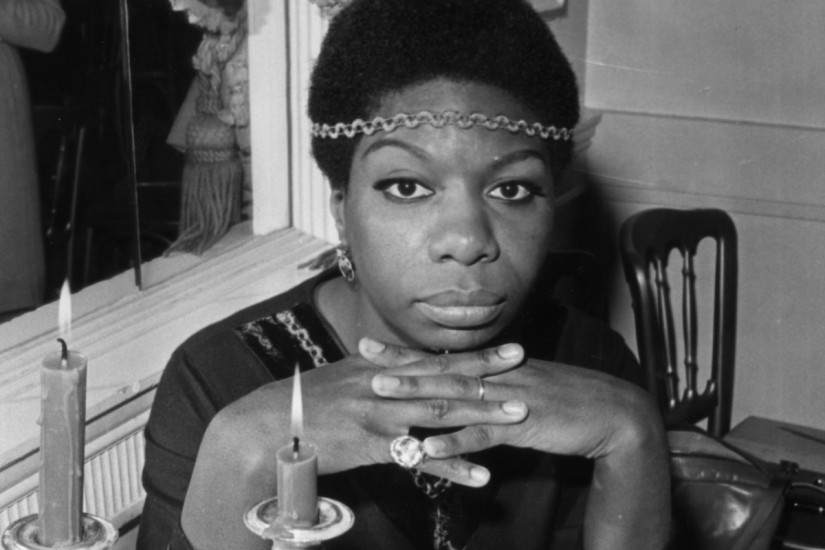Simone herself had been hesitant at first. Known for her sophisticated pianism, her imperious attitude, and her velvety rendition of “I Loves You, Porgy” (which, like Billie Holiday before her, she sang without the demeaningly ungrammatical “s” on “loves”), she had arrived in New York in late 1958, establishing her reputation not in Harlem but in the clubs of hip and relatively interracial Greenwich Village. Her repertoire of jazz and folk and show tunes, often played with a classical touch, made her impossible to classify. In these early years, she performed African songs but also Hebrew songs, and wove a Bach fugue through a rapid-fire version of “Love Me or Leave Me.” She tossed off the thirties bauble “My Baby Just Cares for Me” with airy insouciance, and wrung the heart out of the lullaby “Brown Baby”—newly written by Oscar Brown, Jr., about a family’s hopes for a child born into a better racial order—erupting in a hair-raising wail on the word “freedom,” as though registering all the pain over all the years during which it was denied. For a while, “Brown Baby” was as close to a protest song as Simone got. She believed it was enough.
And then her friend Lorraine Hansberry set her straight. It speaks to Simone’s intelligence and restless force that, in her twenties, she attracted some of African-American culture’s finest minds. Both Langston Hughes and James Baldwin elected themselves mentors: Simone, appearing on the scene just as Holiday died, seemed to evoke their most exuberant hopes and most protective instincts. But Hansberry offered her a special bond. A young woman also dealing with a startling early success—Hansberry was twenty-eight when “A Raisin in the Sun” won the New York Drama Critics’ Circle Award, in 1959—she had a strongly cultivated black pride and a pedagogical bent. “We never talked about men or clothes,” Simone wrote in her memoir, decades later. “It was always Marx, Lenin and revolution—real girls’ talk.” A milestone in Simone’s career was a solo concert at Carnegie Hall—a happy chance to show off her pianism—on April 12, 1963, which happened also to be the day that Martin Luther King, Jr., was arrested with other protesters in Birmingham, Alabama, and locked up in the local jail. The discrepancy between the events was pointed out by Hansberry, who telephoned Simone after the concert, although not to offer praise.
